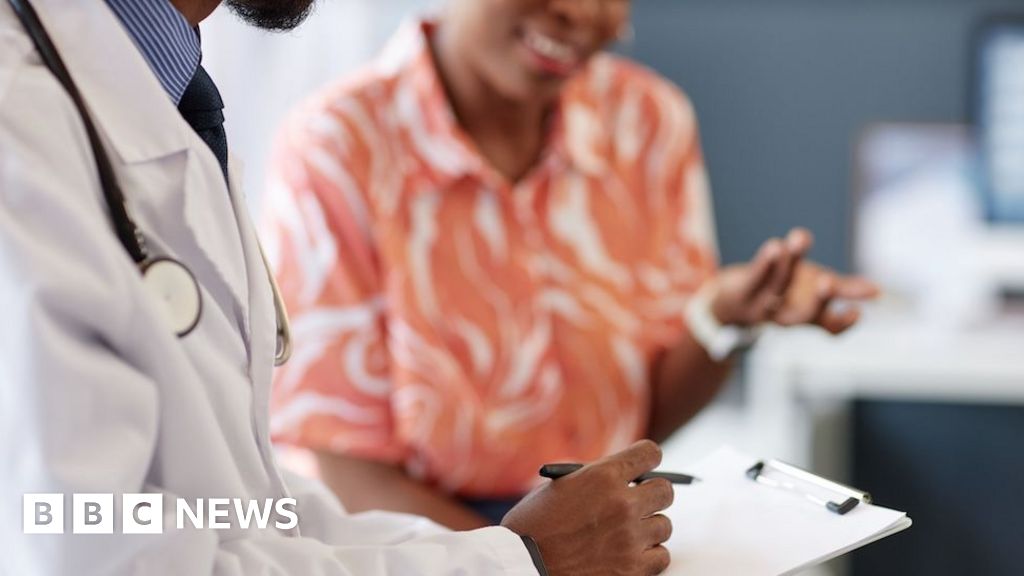ARTICLE AD BOX
By Marie-Louise Connolly
BBC News NI Health Correspondent
There is "clear evidence" there were personal protective equipment (PPE) shortages across the health sector during the Covid-19 pandemic, the NI Audit Office has found.
PPE stocks remained "very low" until June 2020, a report by the Auditor General Kieran Donnelly said.
This was particularly the case with FFP3 (respirator) masks.
PPE supplies only increased after "extensive lobbying" and when Covid cases escalated in care homes.
That is according to the Royal College of Nursing (RCN) and Independent Healthcare Providers.
The report said there was a 429% increase in the total number of PPE items between March 2020 and May 2021.
It concluded that lessons must be learned, including less reliance on uncompetitive procurement processes and better controls for managing "potential conflicts of interest".
The Department of Health has welcomed the report, saying it highlighted the "enormous challenges that faced the health service at the outset of the Covid-19 pandemic".
'Relentless demand'
The RCN has said the report provides graphic confirmation of the "serious concerns that were raised by nursing staff".
Rita Devlin, director of the RCN, said: "Nurses should never have been put in the position where they were placing themselves and their families at risk to do their job."
Throughout the pandemic, equipment was purchased by the Business Services Organisation's Procurement and Logistics Service (BSO PaLS), an arm's length body of the Department of Health.
Nearly £400m of PPE was purchased by the BSO between January 2020 and April 2021, compared with £3m spent in 2019.
Image source, Reuters
Image caption,Nearly £400m was spent on PPE between January 2020 and April 2021, compared with £3m in 2019
Demand for PPE across the UK was "relentless".
According to the auditor, procurement involved the use of direct award contracts, in which contracts are awarded without competition.
By April 2021, £371m of PPE was purchased via this route.
Within the health and social care sector pre-Covid, prices increased by 957% for gowns and 1,314% for Type IIR masks.
The auditor's report lays bare the high costs involved; also the pressure organisations were under to secure safe equipment.
Despite referring 60 high-cost cases to the Competition and Markets Authority in May 2020, BSO PaLS bought £127m of PPE from the same suppliers to secure urgently needed equipment.
The BSO PaLS said that no potential offers were "fast tracked", and all had to pass quality and specification assessments prior to purchase.
'Lessons must be learned'
Mr Donnelly said the report "reflects and recognises the enormous challenges facing the health service, particularly at the outset of the pandemic".
However, he also said that while the entire system was "under immense pressure to identify new sources and secure orders", lessons must be learned.
This included the need for improved contingency and emergency planning to avoid a repetition of any supply shortages.
Also, there should have been "less reliance on uncompetitive procurement processes, better controls for managing potential conflicts of interest and more comprehensive documenting of decisions over high-cost procurements".
The report highlights that by July 2021, accumulated PPE stocks amounted to a 71-week supply, which exceeded the target of 12 weeks' supply.
It also concludes there should have been greater clarity over longer-term procurement and funding arrangements for PPE provision to the independent care sector.
In a statement, the Department of Health said the report detailed the scale of the efforts to secure PPE supplies, including that more than 2,000 potential leads for equipment were investigated with 45 new suppliers engaged between January 2020 and April 2021, from which more than 600 million core PPE items were ordered.
It said it welcomed "the tribute from the Comptroller and Auditor General to the efforts of those working on PPE procurement in the pandemic".

 3 years ago
43
3 years ago
43








 English (US) ·
English (US) ·